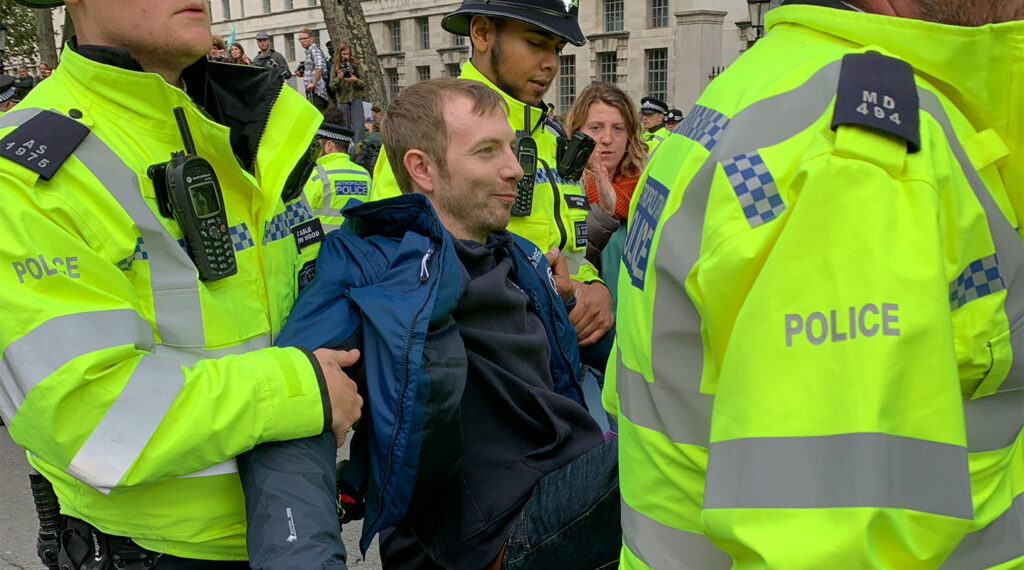Why philanthropy should care about the rule of law culture in Europe

Democracy is a verb, underpinned by a strong rule of law culture. The word democracy comes from the Greek words “demos”, meaning people, and “kratos” meaning power; so democracy can be thought of as “power of the people”, a way of governing which depends on the will of the people. However, many of us worry that society is becoming more polarised and unequal, doubting our governments’ choices on how to treat migrants, tackle the climate crisis or respond to global conflicts.
The European Union is founded on the values of respect for human dignity, freedom, democracy, equality, the rule of law and respect for human rights, as laid down in article 2 of the Treaty on the European Union. A strong rule of law culture ensures a democratic environment for elected decision makers and President Ursula von der Leyen has embarked on a mission to strengthen the rule of law across the continent. At the heart of these efforts is the annual rule of law report, which dives into justice, anti-corruption, media pluralism and freedom and institutional checks and balances including civic space.
Every year, Philea, together with Ariadne and Civitates, convenes the European Commission and philanthropic organisations to unpack the Commission’s annual rule of law report and the role of philanthropy in strengthening the rule of law in Europe.
More safety, protection and care
Annegret Kempf from the European Commission’s DG JUST highlighted the Political Guidelines of the current EU mandate, which anchor a strong commitment to further cement the rule of law at the heart of the functioning of the EU. The expansion of the 2024 rule of law report to the accession countries demonstrates the political will to consider not only security and economic considerations to expand the Union, but also our Union values. The next report, to be released in 2025, will create stronger links between the rule of law and the single market. This interlinkage will also be reflected in the revision of the MFF, where efforts are being undertaken to promote reforms that strengthen the rule of law, drawing on experiences with the Recovery and Resilience Fund.
“Evidence shows that external pressure combined with internal pressure by CSOs can at least limit the decline of the ROL and sustain civic space” Krysztof Izdebski, Stefan Batory Foundation
Krysztof Izdebski from the Stefan Batory Foundation in Poland underlined how the annual reports play an instrumental role in restoring the rule of law in Poland. While the report might have been too forgiving of the new government, it still presents an excellent opportunity to voice concerns on the rule of law or human rights more broadly. Civil society has formed coalitions when developing their opinion on the report, which provided for a high-quality response. In the context of the CEE region, the report can be a basis for cross-national collaboration amongst civil society organisations. This already resulted in a joint statement on how to further improve the process around the report, and in coalitions around the encouragement of electoral participation and the promotion of migrant rights.
As we see across the CEE region, media pluralism is lacking, which is also the case in Serbia. Ana Novakovic from the Trag Foundation reported how public broadcasters often label CSOs and activists as foreign agents, which creates distrust between the public and CSOs. The smear campaigns are often led by high-level officials. In the context of demonstrations against lithium mining and monitoring of domestic elections, civil society faces pressure, unlawful arrests and harassment. She welcomed the extension of the annual rule of law report to the accession countries.
But also at the European level, more could be done to strengthen the rule of law culture. The Mercator Foundation based in Germany is a key actor in this, for instance by supporting the Rule of Law Clinic at the CEU Democracy Institute. Dr. Joelle Grogan shared insights from her work on the assessment of the European Union adherence to the rule of law through independent assessment, as featured in their recent publication.
Importantly, concerns about the rule of law can no longer be restricted to a select few countries in Europe. As noted by Julie Pascoet from ENAR, “Unfortunately, the current political climate prioritises security and repression. This reiterates the need for civil society to strengthen the movement looking at more safety protection and care, and to ensure a broad anti-racist leadership in Europe.” Philanthropy plays a key role as an independent actor working towards stronger democracies and more equal societies.
Philea closely monitors, analyses and engages around the situation of the enabling environment of philanthropy and wider civil society. Get in touch if you want to learn more about Philea’s work on the rule of law, notably:
- Commission consultation on 2025 Rule of law report and on the single market dimension
- Commission revision of the next Multi-Annual Financial Framework on how to build closer links between financial support and the recommendations coming from the rule of law reports.
- Polish presidency conversations within the General Affairs Council and the Justice and Home Affairs Council with regard to the role of civil society in protection of the rule of law, taking into account the requirement of independence of the legal profession, freedom of research and the role of whistleblowers in this process.
- The European Parliament draft report on the 2024 European Commission rule of law report
Authors

